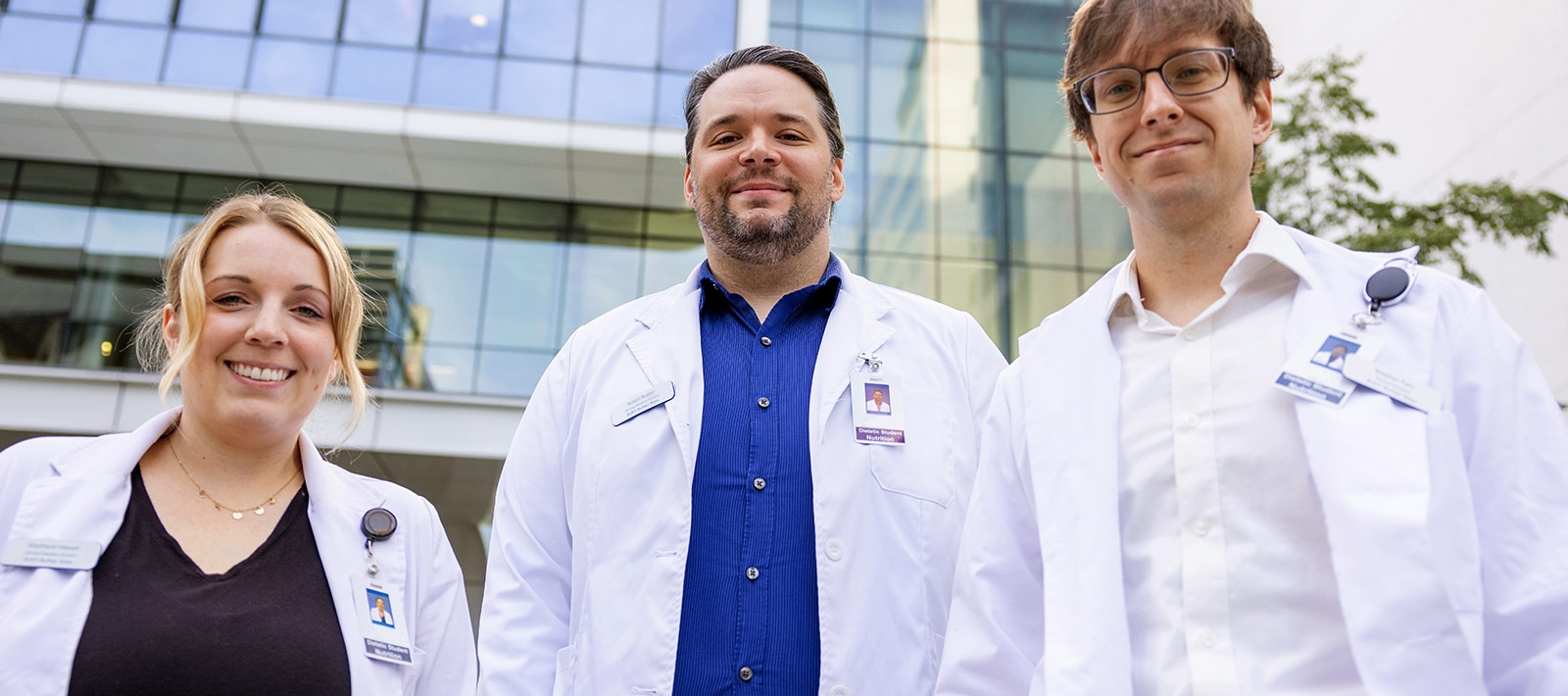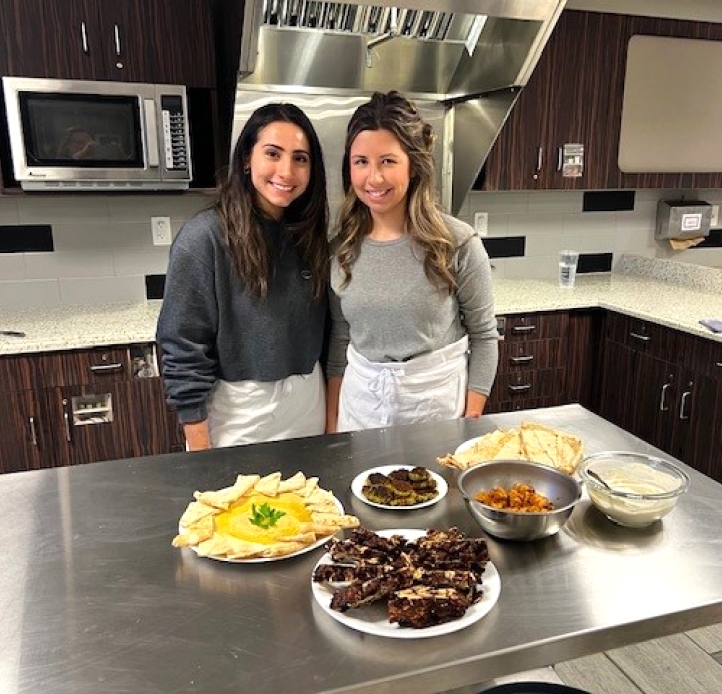
Buffalo State offers three programs in dietetics and nutrition. Each is one-of-a-kind:
The Dietetics Combined Pathway (B.S. and M.S.) offers students the quickest and most affordable path to becoming a registered dietitian nutritionist (RDN). Whether through on-campus applied learning experiences in our Nutrition and Counseling Center or participation in exciting field internships, students in the Dietetics Combined Pathway receive individualized attention from practicing experts. This is the only program in Western New York that leads to the registered dietitian nutritionist credential in which 12 of the 30 graduate credits have undergraduate tuition rates.
The undergraduate Nutrition and Dietetics, B.S., is Western New York’s only ACEND-accredited program that leads to eligibility for the Nutrition and Dietetics Technician, Registered (NDTR) exam. In addition, this program provides students with the academic requirements established by ACEND for eligibility to apply for master’s internships at other institutions so they may become a registered dietitian nutritionist (RDN).
The Dietetics. M.S. is one of the few online master’s degrees for already credentialed RDNs.
$21M
Investment in renovation for state-of-the-art facilities
1
The ONLY undergraduate program in Western New York that leads to being able to sit for the NDTR (Nutrition and Dietetics Technician, Registered) exam.
100%
The employment rate for graduates of our Dietetics Combined Pathway (B.S. and M.S.) seeking employment in the field

Below are the key requirements to become eligible for the RDN Examination:
- Degree: A minimum of a graduate degree from a USDE-recognized accredited institution (or equivalent). The graduate degree requirement may be met in any area.
- Nutrition-Related Coursework: Complete one of the Accreditation Council for Education in Nutrition and Dietetics (ACEND)
- Achievement of all ACEND–required competencies
- Supervised Experiential Learning and Planned work experience (1,000 hours)
At Buffalo State University, there are multiple pathways to obtain the requirements:
| Degree | Coursework | Supervised Experiential Learning |
| Buffalo State’s Dietetics Combined Pathway (BS and MS) | Dietetics Combined Pathway is an ACEND-accredited Graduate Program | Integrated within the Dietetics Combined Pathway (B.S. and M.S.); includes the required 1000 hours of experiential learning |
| Graduate degree from USDE-recognized accredited institution outside Buffalo State | ACEND-accredited BS, Dietetics, a didactic program in dietetics (DPD), such as Buffalo State’s Nutrition and Dietetics (B.S.) Program | ACEND- accredited Dietetic Internship (DI) outside Buffalo State |
Students complete 12 graduate credits while completing the bachelor’s degree.
Some individuals use this program to prepare for graduate study in nutrition-related areas. As a registered dietitian, you may advise any of the following:
- Diabetes Treatment Centers
- Food Companies (ex. Kraft)
- Government Agencies (ex. FDA)
- Health/Spa Retreats
- Homeless Shelters/Food Banks
- Hospitals
- Individuals--Celiac Disease Management
- Individuals--Diabetes Management
- Individuals--Eating Disorders
- Individuals--Sports Nutrition
- Individuals--Weight Management
- International Food Organizations
- Long-Term Care Facilities
- Media Programs
- NGOs, like CARE
- Outpatient Facilities
- Pediatric Healthcare Specialists
- Pharmaceutical Companies
- Public Health Agencies (State/County)
- Rehabilitation Facilities
- Restaurants
- Schools/Boards of Education
- Senior Care Facilities
- Trade Associations (ex. Dairy Council)
- University Dining Facilities
Health and Fitness Organization: a student-run organization is open to all Health, Nutrition, and Dietetics majors. Students design and implement health programs on campus and in the community; intern or shadow fitness industry professionals; attend conferences; and participate in field research.
Nutrition Club: a student-run organization that enables students to listen to and meet dietitians in the community, host nutrition education projects for the college and community, and participate in community service activities.
Phi Upsilon Omicron Mu Chapter: the oldest national family-and-consumer-sciences honor society in the U.S. Accepted students participate in disease awareness events, fundraisers, and events related to nutrition and health awareness.
Health and Wellness Student Association: Educates students through lectures, guest speakers, conferences, and field trips
"Buffalo State has the resources of a larger university, but also has a community feel where you can access professors and get strong mentorship."


